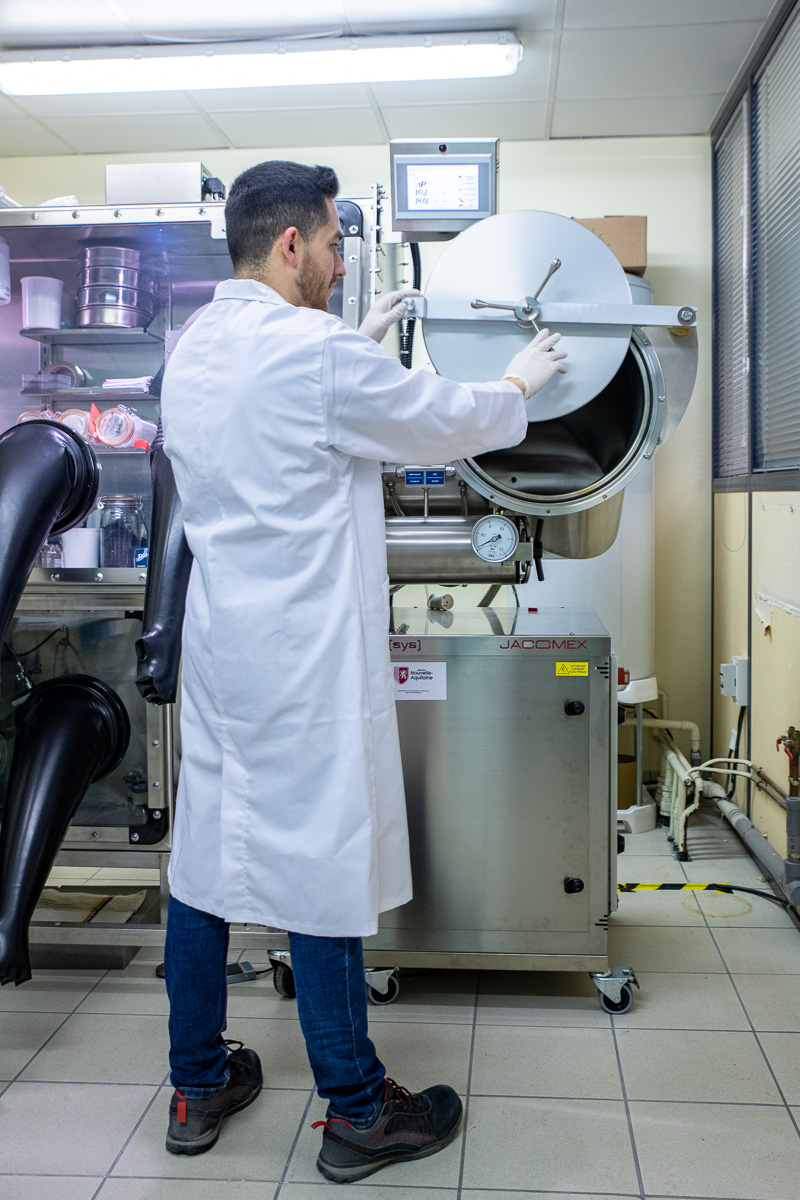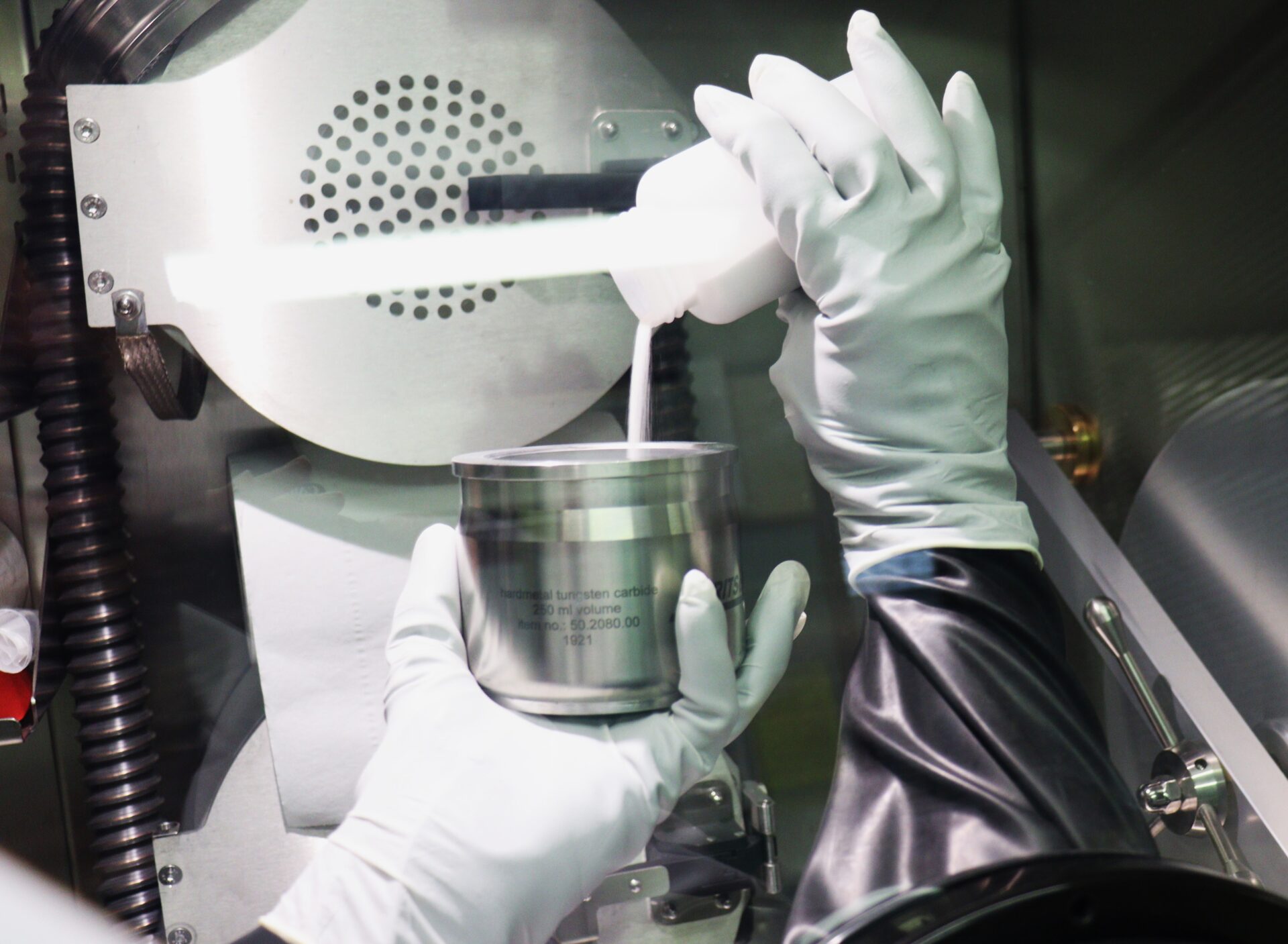CERACOAT

06 Feb 25
Articles
The CTTC, with the CERACOAT project—one of the pillars of the CERA 3+ program—continues its commitment to research and development in ceramic processes.
CERACOAT: The Revolution of Cold Coatings
The project positions itself as an innovative response to the technological challenges of advanced material coatings. It focuses on the deposition of ceramic coatings through a dry process using the Aerosol Deposition Method (ADM). This groundbreaking technique enables the deposition of dense and uniform ceramic layers at room temperature on a wide range of substrates. ADM thus leads to coatings with unprecedented performance while offering significant environmental benefits compared to traditional processes, which require extremely high temperatures or relatively polluting chemical precursors.
Two Development Axes for Sustainable Innovation
The CERACOAT project is structured around two main areas: one focusing on materials and the other on the process itself.
Each aspect is designed to ensure that the project meets current industrial requirements while providing a long-term vision, supported by our academic partner, the IRCER.
✔️ Materials Focus: Expanding Application Possibilities
In this area, the CTTC focuses its efforts on developing various ceramic materials, such as alumina, zirconia, barium titanate, aluminum nitride, silicon carbide, hydroxyapatite, and battery materials. These materials, known for their exceptional properties, are particularly sought after for high-tech applications in sectors such as electronics, aerospace, biomedical, defense, and energy.
The main envisioned applications are as follows:
- 🔋Electric batteries, with coatings that enhance storage performance and durability.
- 🛡 Wear-resistant, scratch-resistant, and impact-resistant coatings for applications in demanding environments (automotive, aerospace, etc.).
- 👓Transparent ceramic coatings for advanced optical technologies.
One of the key strengths of ADM is its ability to deposit dense and uniform ceramic layers on heat-sensitive substrates, such as glass and polymers. This offers great flexibility and high potential for applications in industries seeking to combine performance and lightweight properties. The CTTC, the only organization in France working on this technology, collaborates with the Institute of Ceramic Research (UMR CNRS 7315) through doctoral projects to better understand the deposition formation mechanisms and thoroughly characterize the properties of the layers.
✔️ Process Focus: Aiming for Industrialization
The second focus of the CERACOAT project is on stabilizing the ADM process and its industrialization, with the goal of making it suitable for large-scale deployment. The aim is to make the process more efficient, reliable, and repeatable by improving the yield and reproducibility of the deposits.
Another major goal of the project is to enable ADM to perform deposits on 3D parts. This advancement will allow the treatment of parts with complex geometries, while providing exceptional surface characteristics for demanding sectors like aerospace and medical, where high performance is required. IRCER also plays a key role in this development phase, conducting research to understand 3D deposition phenomena and optimizing manufacturing parameters.
A large-scale project, a catalyst for industrial innovation.
The CERACOAT project is part of an innovation-driven effort aimed at developing sustainable, competitive industrial solutions that address contemporary technological challenges. By offering an eco-friendly alternative to conventional ceramic deposition processes, ADM provides a response to growing environmental concerns and paves the way for a greener industry. The project also contributes to strengthening France's technological leadership in the field of advanced materials.
This project highlights the strength of collaboration between private and public partners in driving innovation. The next steps of the project will focus on scaling up and developing a transferable system for industry.
Thanks and Partnerships
The CTTC would like to thank the European Union and the Nouvelle-Aquitaine Region for their confidence and financial support. Without this support, a project of this scale would be difficult to carry out.
The CTTC also extends its thanks to the various partners involved in the different projects of this program, especially the Institute of Ceramic Research.
